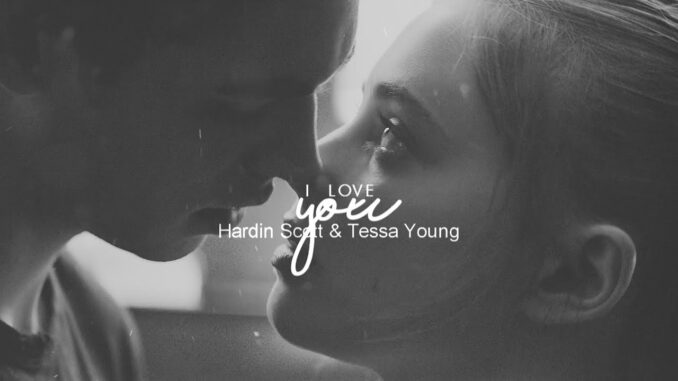
The After movie franchise, known for its dramatic romance and whirlwind emotions, took a surprising yet refreshing turn with its fifth installment, After Everything. This chapter breaks the established formula by shifting the narrative lens away from the typical shared focus between Tessa and Hardin, and instead zeroes in almost entirely on Hardin Scott’s perspective. This bold choice pays off, offering fans a deeper, more vulnerable look into one of the most polarizing characters in modern romantic cinema.
When After Everything begins, Tessa is no longer at the center of Hardin’s world. The couple is estranged, and Hardin is left alone with the consequences of his behavior — not just in his romantic life, but in every facet of who he has become. Rather than showing the dramatic ups and downs of their relationship, the film quietly opens with a man who has lost his compass. The silence left in Tessa’s absence becomes a powerful motivator for Hardin to reflect and change.
Redemption Over Romance
What makes After Everything so compelling is its mature handling of redemption. Unlike earlier entries that focus on the volatility and chemistry between two lovers, this film is less about winning someone back and more about righting a wrong. It reveals a different side of Hardin — one that is remorseful, patient, and introspective.

Natalie, played with quiet strength, is not a damsel or a romantic rival. She represents the damage left behind by a younger, more reckless Hardin — the one we saw in glimpses through Tessa’s perspective. Their interactions are raw and painful, but necessary. Through her, Hardin begins to understand the ripple effects of his actions, not just on lovers but on people whose stories never made it into the earlier chapters of his life. The decision to give Natalie her voice in this narrative is a significant one. It shifts the story from a typical romantic arc to something deeper — a meditation on regret, consequences, and accountability.
The Power of Solitude
Another noticeable difference in After Everything is the quietness of the film. With fewer supporting characters and minimal romantic tension, the movie breathes in a way the previous installments never allowed. It gives space for introspection and personal growth. Hardin’s time in Lisbon is beautifully understated. He’s no longer the brooding bad boy slamming doors and making dramatic declarations. Instead, he’s a man sitting in silence, writing in his notebook, walking through unfamiliar streets, and contemplating who he wants to be. It’s in this solitude that he begins to transform — not because he hopes to win Tessa back, but because he finally sees himself clearly.
Tessa’s Return: Quiet, Not Climactic
Though the film is told from Hardin’s point of view, Tessa does appear — but not in the ways fans might expect. Her presence is more symbolic than central. When she returns near the end of the film, it’s not to reignite drama, but to offer a quiet resolution. Their reunion doesn’t rely on grand gestures or sweeping kisses. Instead, it’s filled with mutual understanding and emotional restraint. It’s in these final scenes that the growth of both characters becomes most apparent. Tessa is no longer the girl torn between love and self-preservation. Hardin is no longer the boy who needs her to fix him. They’ve each walked their own paths, and when they finally cross again, it feels earned.
Breaking the Formula: A Necessary Risk
For a franchise built on romantic turmoil, After Everything is a gamble. It lacks the melodrama and steamy tension that defined earlier films, and that might be disappointing to some fans. However, this tonal shift is not only necessary — it’s the reason this chapter stands out. By focusing on Hardin’s inner world, the film gives the series a sense of closure it desperately needed. Instead of simply rehashing the same arguments or rekindling the same flame, it offers evolution. We’re not watching a romance collapse and rebuild for the fifth time — we’re watching a person choose to change, and that makes all the difference.
A Franchise Comes Full Circle
With After Everything, the After series finally feels complete. It’s no longer just a story about a passionate, messy relationship — it’s a coming-of-age tale stretched over five films. We see how love can both destroy and save, how mistakes can linger for years, and how true growth only comes when the characters look inward. Hero Fiennes Tiffin delivers his most nuanced performance yet, balancing regret, hope, and sincerity with maturity. His portrayal of Hardin in this film feels like a culmination of everything the character has endured — and inflicted — over the course of the series.
Final Thoughts
After Everything doesn’t just conclude the story of Tessa and Hardin — it redefines it. By giving Hardin a voice and exploring his past with care, the film shifts the entire narrative arc of the franchise. It challenges viewers to see him not just as a love interest, but as a flawed, real person searching for meaning beyond romance. This film may not have the explosive drama or romantic fireworks of its predecessors, but what it offers is far more powerful: redemption, peace, and the understanding that some stories aren’t about getting the girl — they’re about becoming someone worthy of her.
